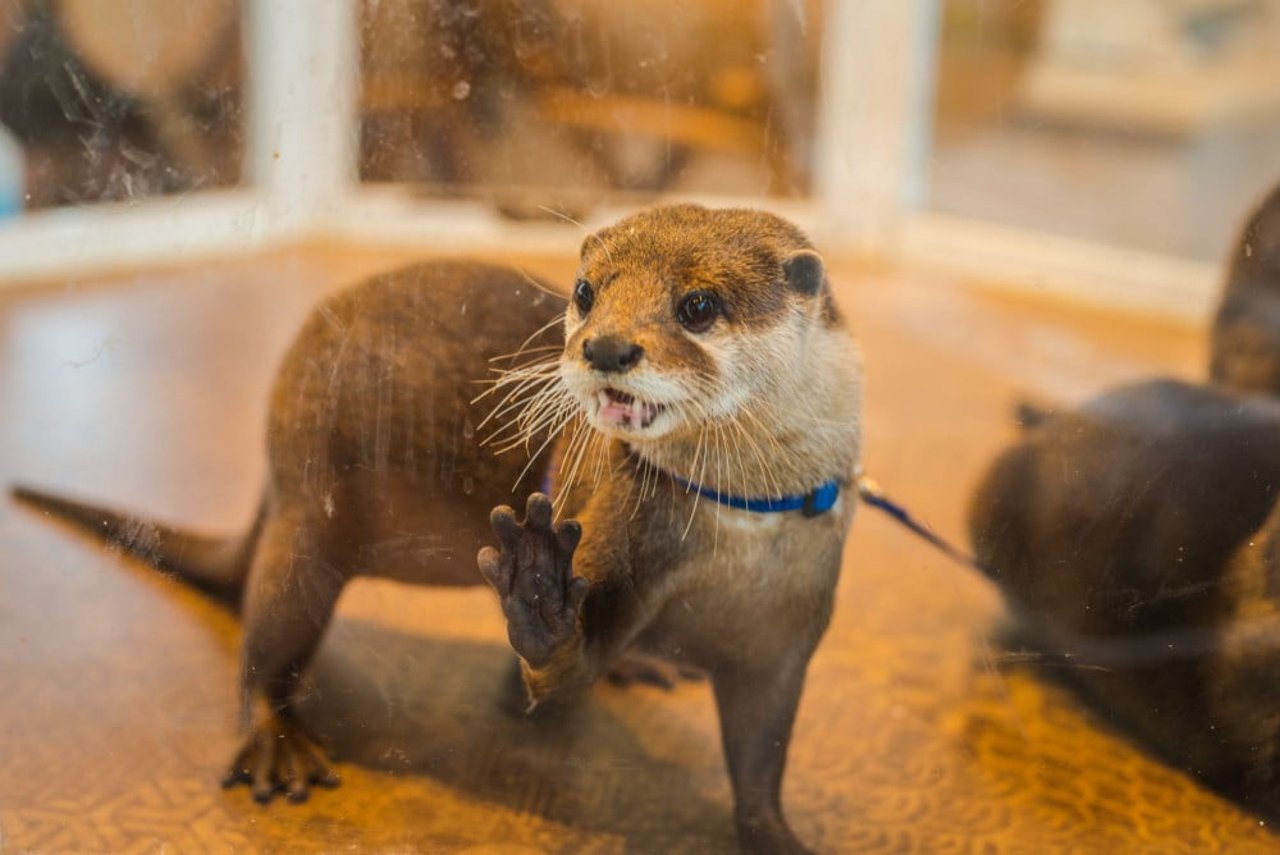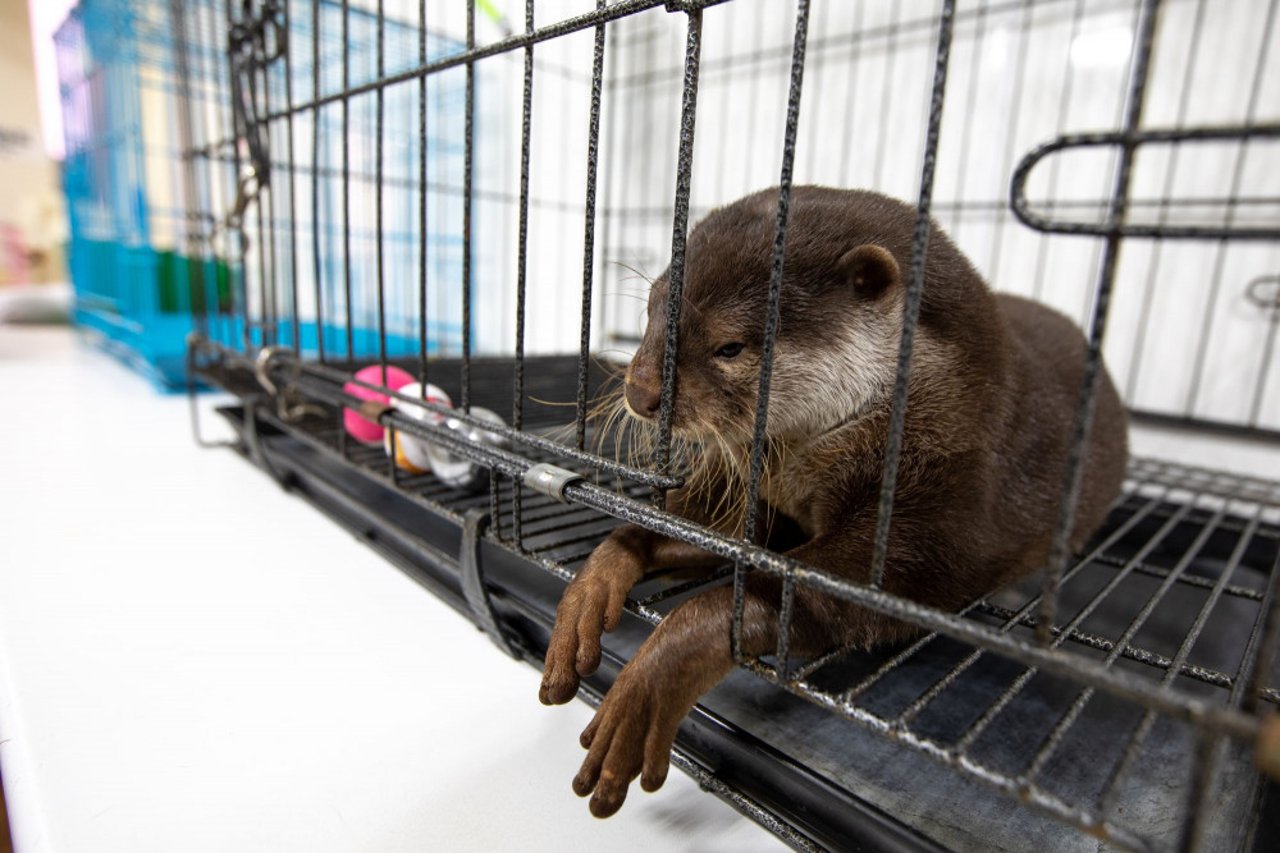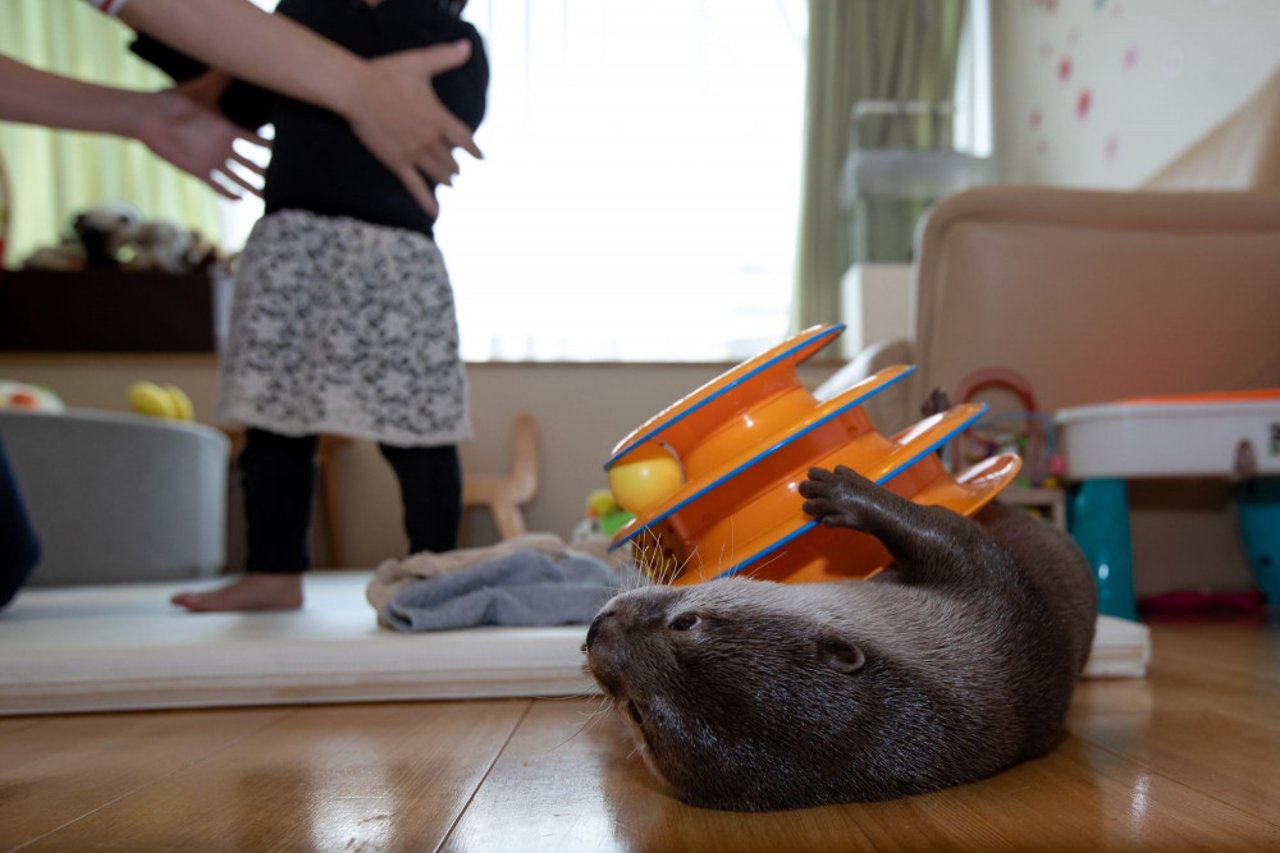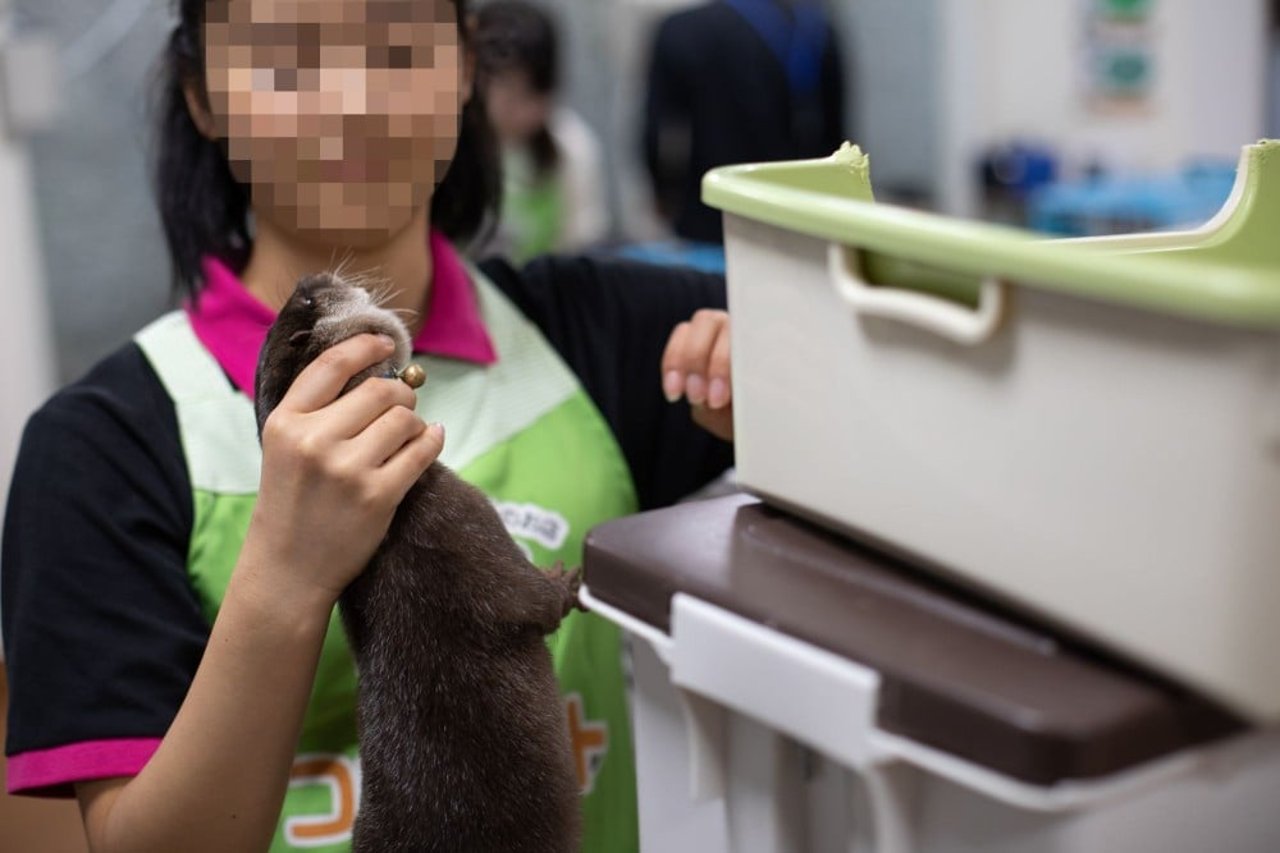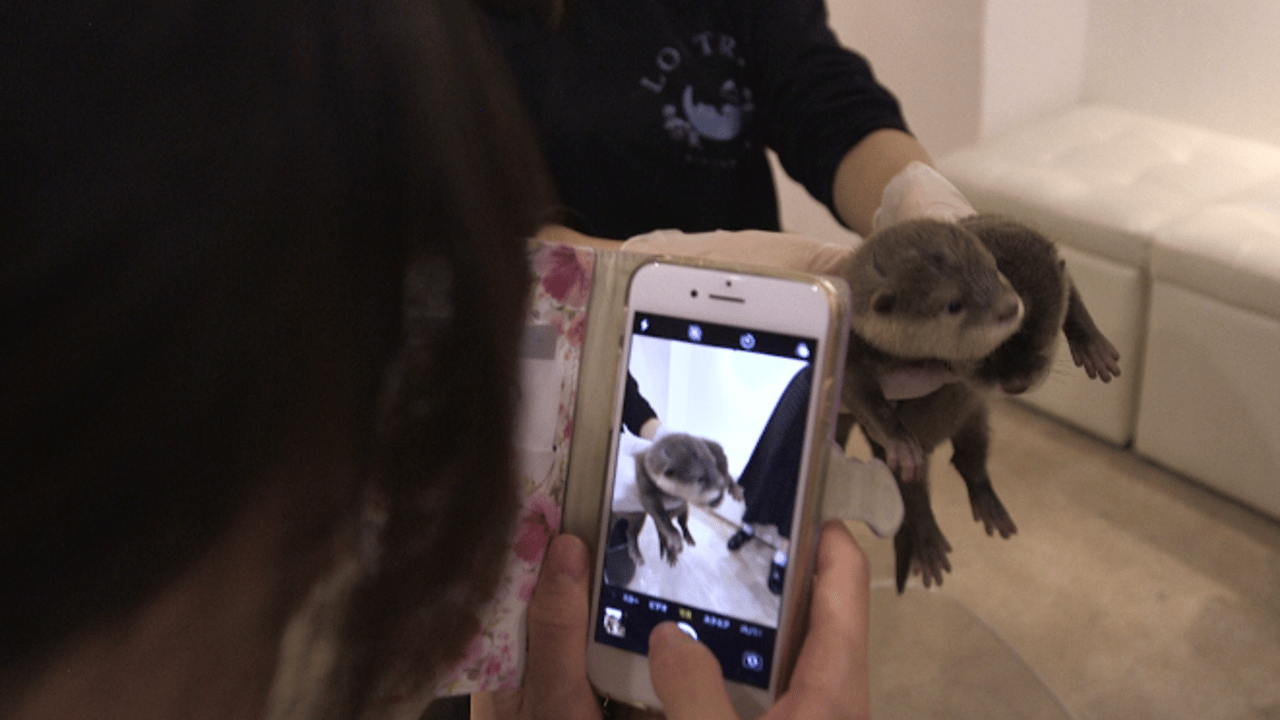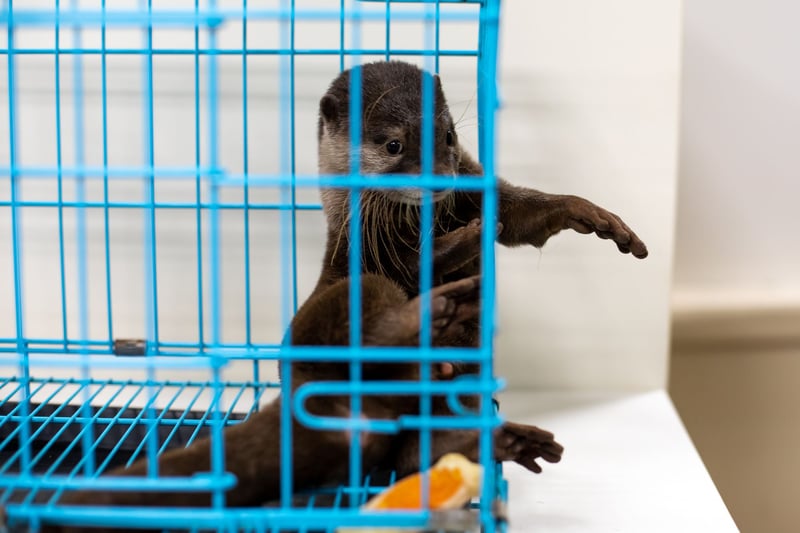
Why you shouldn’t share that cute pet otter video
Blog
Social media is the biggest driver behind the trade of otters to be kept as pets – but these wild animals suffer greatly in captivity
With their cute little faces, smooth shiny fur and bright personalities, it’s not hard to see why so many people around the world are fascinated with otters. So much so that an increasingly large number of people, especially in Southeast Asia, are keeping them as pets in their homes – however, these wild animals suffer from chronic stress when confined in captivity.
They're not happy in our homes
In their natural habitat, otters spend their lives in and around water. This degree of access can rarely be provided by a pet owner, limiting it to some time spent in a bathtub or paddling pool. They are highly social animals who naturally live in large groups who hunt together - a far cry from their existence as pets.
Showing signs of trauma
Many of the “cute” and very popular pet otter videos on social media show the animals displaying stereotypical behaviours – these are behaviours that otters do not display in the wild and are a sign of stress. These include running furiously across a room, and screaming for long periods of time, which may be perceived as "chattering" but is actually a distress call. They are signs that the otter may be suffering from isolation, boredom (lack of enrichment) and that they’re probably spending too long in a small cage that limits their movement.
They can hurt humans
Not only is a home environment not suitable for the welfare of otters, but this relationship can also have some undesirable consequences for their human owners, as they can be loud, destructive and can inflict nasty bites. As a result, these pets are often abandoned. Rescue groups say they are struggling to keep up with the large numbers of unwanted otters arriving in their care, often having suffered malnutrition and mutilations to make them less of a nuisance in the home (such as teeth or scent glands removed).
Otter cafés
In addition to pet ownership in South East Asia, Japan is currently undergoing an ‘otter craze’ fueled primarily by Instagram-famous pet otters who are shown off on television and social media. Otter and wild animal cafés – coffee shops that have otters on display and in some cases available for holding or petting by customers – are also part of this problem. Our investigators found that the otters in these cafés were often kept in cruel conditions – lacking proper nutrition, access to water and enrichment – and were sometimes seen in clear distress.
Their cuteness is killing them
The growing demand on the market for pet otters has seen an increase in low-welfare backyard breeding facilities, and poaching from the wild, particularly in Thailand. Because otter parents are so fiercely protective, poachers in Thailand use dogs to sniff their dens and then kill the parents in order to steal the cubs to be sold on the illegal online market. As the popularity of "cute" otter video rises, populations in the wild decline.
How you can help
- Our investigations show that social media is the biggest driver in creating a desire for pet otters. You can help by not sharing videos showing pet otters, putting an end to the normalisation of the pet otter craze.
- Read our otter report, "Trending: Otters as exotic pets in Southeast Asia and the online activity fueling their demise"
- Pledge to never own an exotic pet, including otters:
